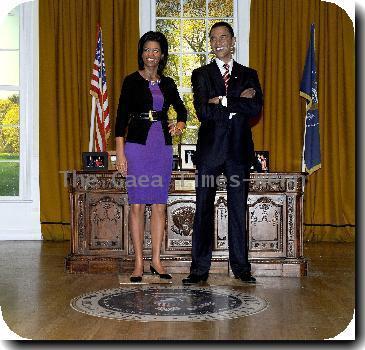Stocks fall on disappointing jobs, durable goods reports; uncertainty over gov’t regulation
By Stephen Bernard, APThursday, January 28, 2010
Stocks lower in early morning trading
NEW YORK — Stocks fell sharply Thursday as investors absorbed more evidence of a troubled economy.
The Dow Jones industrial average fell nearly 100 points following disappointing reports on employment and orders for big-ticket manufactured goods.
The market also fell in response to a report from Standard & Poor’s that said it no longer considers Britain among the “most stable and low-risk” banking systems. The report drove the dollar higher as investors sought safety. That sent some commodities prices lower, hurting materials stocks.
The S&P report was yet another worry for investors who have been focused on politics, not the economy.
President Barack Obama’s plan to overhaul banking regulations and restrict trading at large financial institutions spooked the market over the past week. The possibility Federal Reserve Board chairman Ben Bernanke wouldn’t be confirmed for a second term also had investors on edge, though those worries have subsided. Stocks have fallen five of the past eight days.
During his State of the Union address Wednesday night, Obama avoided talking about the banking overhaul plan. Uncertainty over details of how that plan might be enacted and how strong trading restrictions would be had helped push the market to its worst three-day stretch since stocks bottomed last March.
Focus on the economy is creeping back to the forefront. The Fed said Wednesday afternoon it would keep interest rates at historic lows and the economy was showing signs of improvement. That helped stocks reverse a slide to end higher.
The Labor Department said weekly jobless claims fell by less than expected last week and the Commerce Department reported durable goods orders didn’t rise as fast as anticipated last month, providing a reminder the economic recovery is likely to be slow.
In midmorning trading, the Dow Jones industrial average fell 129.53, or 1.3 percent, to 10,106.63. The Standard & Poor’s 500 index fell 12.74, or 1.2 percent, to 1,084.76, while the Nasdaq composite index fell 40.69, or 1.8 percent, to 2,180.72.
Bond prices were mixed. The yield on the benchmark 10-year Treasury note, which moves opposite its price, rose to 3.67 percent from 3.66 percent late Wednesday.
The dollar rose against other major currencies, while gold fell.
Crude oil rose 43 cents to $74.10 per barrel on the New York Mercantile Exchange.
In economic news, new requests for unemployment benefits fell modestly, dropping to 470,000 last week. Economists polled by Thomson Reuters had been expecting a bigger drop to 450,000 new unemployment filings.
Orders to U.S. factories for big-ticket manufactured goods rose less than expected in December, increasing just 0.3 percent. Economists had been expecting a 2 percent increase in orders.
For all of 2009, durable goods orders — items expected to last at least three years — tumbled 20.2 percent. It was the largest drop on records that go back to 1992.
On Friday, the government releases its initial reading on fourth-quarter gross domestic product. The GDP number, which measures the entire country’s economic output, likely rose at an annualized rate of 4.5 percent during the final three months of 2009.
Ford Motor Co. said it recorded a profit in 2009 — its first annual profit in four years. The auto maker, which avoided bankruptcy and government bailout money, said it expects to again be profitable in 2010. Ford rose 14 cents to $11.69.
Two stocks fell for every one that rose on the New York Stock Exchange, where volume came to 265.8 million shares.
The Russell 2000 index of smaller companies fell 5.36, or 0.9 percent, to 613.02.
In afternoon trading Britain’s FTSE 100 rose 0.4 percent, Germany’s DAX index was up 0.5 percent, and France’s CAC-40 gained 0.6 percent. Earlier, Japan’s Nikkei stock average rose 1.6 percent.
Tags: Barack Obama, Commodity Markets, New York, North America, Products And Services, Union, United States


